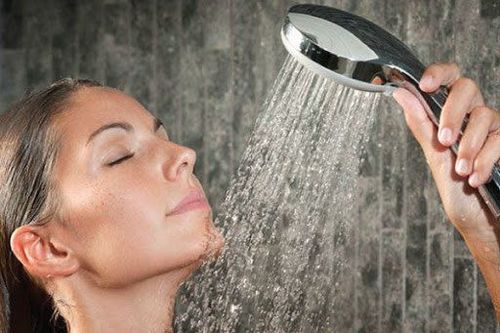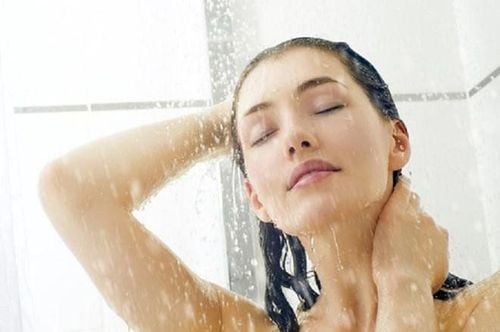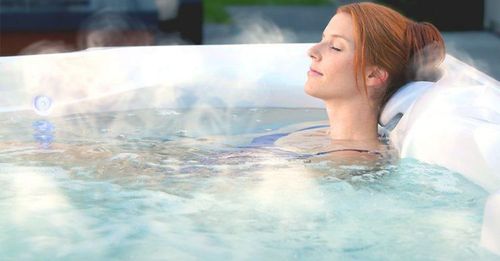This is an automatically translated article.
It's quite strange that athletes, gym goers and warriors often "jump" into the tub of ice water after being physically active. They claim that taking a cold shower after an intense training session or after a competition will bring many benefits. So should you take a cold shower and what are the benefits of an ice bath?
1. What do the studies say about ice baths?
Ice baths for muscle pain relief have been around for decades. But a 2017 study from a trusted source shattered that belief. Research suggests that previous ideas about the benefits of ice baths for athletes were sorely flawed and that the method was not beneficial for muscle pain.
While another study argued that applying active recovery methods such as 10 minutes of light-intensity exercise on a stationary bike was just as good for muscle recovery as like ice baths (experts in the field still believe in using ice baths).
Dr. A. Brion Gardner, an orthopedic surgeon with the Orthopedic Center says there are still benefits to taking an ice bath. “The study does not 100% prove that there are no benefits to taking an ice bath, but rather shows that the previously believed benefits are faster recovery, reduced muscle and tissue damage, improved improvement,” he said. other functions are not necessarily effective.”
Dr Thanu Jey, director of the Yorkville Sports Medicine Clinic, agrees with Dr. A. Brion Gardner’s view, who says: “There will always be Research supports two opposing points of view in this debate.Although many studies have not conclusively shown whether cold showers are advisable, I've always advocated for professional athletes to bathe regularly. ice under tight control.”
An important thing to keep in mind for cold bath research is the sample size and age More studies are needed and the sample size of the studies needs to be large. to determine the benefits of an ice bath most accurately and objectively.
2. 5 potential benefits of an ice bath
Some potential benefits of using ice baths, especially for heavy exercisers or athletes:
2.1. Soothes sore and aching muscles
According to Dr. A. Brion Gardner, the greatest benefit of an ice bath is likely simply to feel good. “After an intense workout, a cold soak can help relieve soreness, cool down muscles,” he explains.
2.2. Positive effects on the central nervous system
Dr. Gardner says that an ice bath can help the central nervous system by aiding sleep, making you feel better and less tired.

Tắm nước đá giúp bạn thư giãn, ngủ ngon hơn
2.3. Limit inflammatory response
According to Dr. Thanu Jey, the theory of reducing the local temperature after exercise helps limit the inflammatory response that occurs, reduces the number of inflammatory agents and helps the practitioner recover faster.
2.4. Reduces the effects of heat and humidity
Ice baths can reduce the effects of heat and humidity. “An ice bath before a long race in high heat or humidity can help lower body temperature by a few degrees, which leads to improved performance,” explains Gardner.
2.5. Training the vagus nerve
One of the main benefits of an ice bath is training the vagus nerve. According to health expert Aurimas Juodka, CSCS, CPT: “The vagus nerve is involved in the parasympathetic nervous system and training it can help the practitioner cope with stressful situations with ease. than".
3. Side effects and risks of ice bath
The most notable side effect of taking an ice bath is making the body feel very cold, in addition to this side effect there are several other risks to consider as follows:
The main risks of taking an ice bath when applies to people with pre-existing cardiovascular disease or high blood pressure : Lowering body temperature and soaking in ice water constricts blood vessels and slows blood flow in the body, which can be dangerous when the person have reduced blood flow, are at risk of cardiac arrest or stroke. Another possible risk is hypothermia, especially if the practitioner soaks in the ice bath for too long. People with type 1 diabetes and type 2 diabetes should also be careful with ice baths as both conditions decrease the body's ability to maintain body temperature during extreme temperature changes.

Hạ thân nhiệt là một rủi ro thường gặp của việc tắm nước đá
4. Tips for taking an ice bath properly
Some things you should know before deciding to immerse your body in ice water.
4.1. How cold should a shower be?
Dr. Gardner says that the temperature of an ice bath for bathing needs to be between 10–15 °C or 50–59 °F.
4.2. How long is the right time to take a cold shower?
Spending too much time in an ice bath can have many adverse consequences, that's why you should limit your cold shower time to no more than 10-15 minutes.
4.3. Expose your body to cold water before taking a dip
You should immerse your whole body in an ice bath to achieve the best effect of blood vessel constriction. However, when starting, you should soak from the feet and shins first, after feeling comfortable, then move back to the chest.
4.4. Note when taking an ice bath at home
If you decide to take an ice bath at home, Dr. Gardner recommends using a thermometer to determine the ideal temperature when equilibrating the ice and water mixture. If the temperature is too high (above 15°C or 59°F), add ice gradually, if too low, add warmer water until desired temperature is reached.

Nên cân bằng hỗn hợp đá và nước để có nhiệt độ tắm phù hợp
4.5. Ice bath time
Dr. Gardner says: “The sooner you take an ice bath right after a workout or competition, the more beneficial it will be. If you wait more than an hour after a workout, then the aches and pains have healed and the inflammation has started.
Another way to get the benefits of ice on sore muscles is to use the 10-10-10 cold compress: apply ice for 10 minutes (do not place ice directly on bare skin), followed by is to remove the ice for 10 minutes and finally apply the ice for another 10 minutes.
When it comes to frequency of ice baths, research is currently very limited. However, some experts believe that only short-term ice baths facilitate rapid body recovery, so long-term ice baths should be avoided.
If you choose to take an ice bath as a form of recovery after a sport or intense workout, be sure to follow the recommended guidelines, especially regarding bath time and water temperature. .
Please dial HOTLINE for more information or register for an appointment HERE. Download MyVinmec app to make appointments faster and to manage your bookings easily.
Reference source: healthline.com













